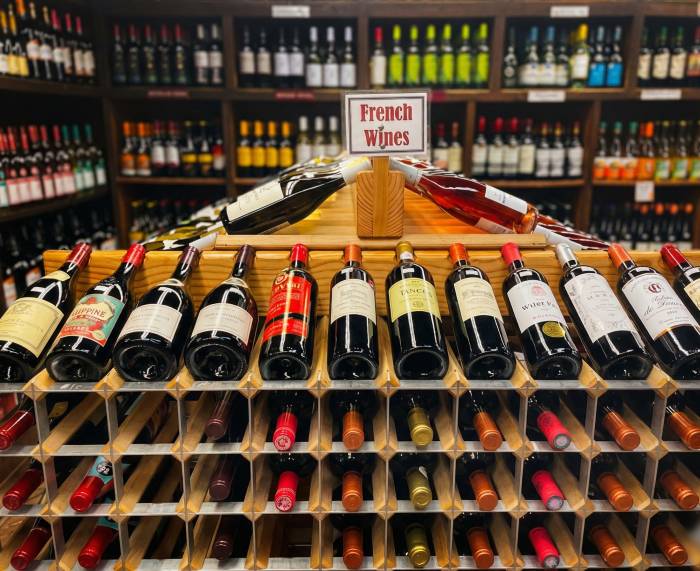$30 Billion Monthly Tariff Windfall Fuels U.S. Deficit Fight as Wine Imports Face 30% Price Surge
Supreme Court review looms over tariffs that strain small businesses, while imported wines show resilience despite rising costs and legal uncertainty
2025-11-21

In April, the President of the United States announced new tariffs on imports from nearly all countries, aiming to address what he called the “threat of the trade deficit” for the U.S. Six months later, this decision is under review by the Supreme Court, which is expected to rule soon on the legality of these tariffs. According to some sources, these additional tariffs are generating about $30 billion per month for the U.S. Treasury, providing a significant boost to efforts to reduce the public deficit. However, for many American businesses—especially small ones—this new tax regime has created serious challenges and threatens their survival.
Victor Owen Schwartz, a wine importer and founder of VOS Selections in New York, has become a leading figure in a legal effort to overturn these import taxes. After two lower court victories, the case reached the Supreme Court on November 5. While no date has been set for a decision, the rapid progression of the case suggests an announcement could come soon.
Importers across the country are feeling the effects of these tariffs. Andrea Nappi Conforme, president of the National Association of Beverage Importers (NABI), explained that everyone must pay these duties upfront, regardless of whether they can pass on the costs to consumers. This advance payment creates cash flow problems, and few companies are willing to make large expenditures at this time. Some businesses managed to ship wines before the new tariffs took effect on August 7 for European companies, but this required significant financial resources and was only possible on a case-by-case basis.
The situation has been made worse by rising interest rates and a federal government shutdown. While port areas remain open and customs agents continue working, importers are no longer receiving tax refunds under the Craft Beverage Modernization Act. This has further strained their finances. The suspension of label approvals (COLA) has also led to lost revenue for companies planning to launch new products.
To help their American partners, some European suppliers have extended payment terms or offered discounts where possible. However, U.S. trade policy has had another side effect: in recent months, the exchange rate between the dollar and euro shifted from near parity to $1.17–$1.20 per euro. This means European products now cost about 15% more in the U.S., bringing total price increases for European wines to around 30%.
Faced with both fiscal and currency pressures, operators have adopted several strategies to mitigate their impact. Using bonded warehouses or free trade zones allows companies to delay paying tariffs while keeping products available in the U.S. Other measures include optimizing logistics costs and using duty drawback programs for importers who also export similar goods. More operators are turning to private labels to better control costs and margins.
Shipping wine in bulk is emerging as another potential strategy for some European exporters. Serena Campbell, chief operating officer at USA Wine West—a leading national import services provider—notes that bulk European wines with alcohol content above 14% and commercial value below $1.50 per liter now benefit from lower tariff rates than before reciprocal tariffs were introduced. Shipments of French bulk wine to the U.S. have jumped 59% over seven months.
Most companies are still adjusting their strategies before making major changes, but imported wines overall appear resilient. According to NABI data through July (the latest available due to government service disruptions), imports of still wines rose 5.7% by volume in the first seven months of this year; sparkling wine imports increased by 13.4%. For France specifically, those figures were 9.2% and 14.9%, respectively.
Imported wines remain difficult to replace with domestic products and often offer better value for money than local options. Adam Schulz, an American broker specializing in bulk wine, says that tariffs have not had a major impact because bulk wine prices are so low that importers continue buying even with a 10–15% increase. He reports selling more wine in one week recently than during all of last year.
Still wine values have seen only modest growth—about 1% over seven months across all countries—but market sentiment is improving compared with last year.
The Supreme Court will now decide whether these tariffs are legitimate or if President Trump exceeded powers that normally belong to Congress. Nicolas Boissonneau of Vignobles Boissonneau in Bordeaux notes that while importer associations have mounted a strong legal challenge, it would be surprising if the tariffs were completely overturned. Andrea Nappi Conforme remains skeptical as well: even if these tariffs were struck down, she believes the administration would find another way to reimpose them under different legislation.
Beyond legal questions, this situation highlights how resilient the imported wine sector is when facing global trade uncertainties. As one Bordeaux producer put it: “These taxes cost everyone—that’s reality in the U.S., just as elsewhere—but today you need to adapt to geopolitical contexts or you stop taking orders.”
Founded in 2007, Vinetur® is a registered trademark of VGSC S.L. with a long history in the wine industry.
VGSC, S.L. with VAT number B70255591 is a spanish company legally registered in the Commercial Register of the city of Santiago de Compostela, with registration number: Bulletin 181, Reference 356049 in Volume 13, Page 107, Section 6, Sheet 45028, Entry 2.
Email: [email protected]
Headquarters and offices located in Vilagarcia de Arousa, Spain.